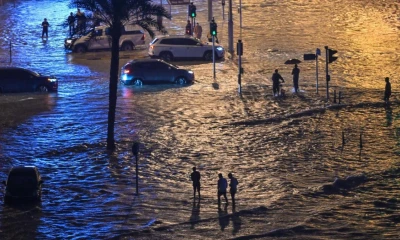World
‘Austria to make COVID vaccines compulsory for adults from Feb’
Nehammer, a conservative who took office in December, said those who didn t comply would face a hefty fine

Vienna: Austria will become the first European country to make Covid-19 vaccination compulsory for adults in February, Chancellor Karl Nehammer said Sunday, acknowledging that it was a “sensitive topic.”
Nehammer, a conservative who took office in December, said those who didn t comply would face a hefty fine.
“We will decide on compulsory vaccination as planned. It will come into force at the beginning of February for adults,” he told a news conference.
Since plans for compulsory jabs were first announced last year, Austria has seen impassioned debate both in parliament and beyond on the issue.
To date 71.5 percent of eligible Austrian residents have had their jabs -- several percentage points below many of the country’s EU neighbours.
Nehammer acknowledged the decision covered "a totally sensitive topic" but said it followed careful consideration.
He warned that after an "entry phase" for the policy, restrictions would be "tightened accordingly" in mid-March on those holding out against the jab, including fines of between 600-3,600 euros ($684-$4,100).
Saturday saw some 27,000 people demonstrate in Vienna against the measure which opponents dub an attack on personal freedoms.
On Thursday Parliament is due to pass into law a bill which initially was set to cover all people from 14 upwards but now will cover adults only.
Exceptions will be made for pregnant women and those who can show they have a medical exemption.
The government has widespread support for a policy which only the far-right is opposing.
Austria has to date seen almost 14,000 Covid-related deaths and 1.4 million cases in a population of some nine million.
Compulsory vaccinations against Covid remain rare worldwide, though Ecuador, Tajikistan, Turkmenistan, Indonesia and Micronesia have introduced such schemes.
Source: AFP
-

 Pakistan 1 day ago
Pakistan 1 day agoCourt postpones hearing on May 7 on Toshakhana reference
-

 Pakistan 1 day ago
Pakistan 1 day agoBy-elections: Two exams of intermediate postponed
-

 Pakistan 2 days ago
Pakistan 2 days agoCypher Case: Hearing on appeals against Imran, Shah sentence today
-

 Pakistan 2 days ago
Pakistan 2 days agoFaizabad Dharna Inquiry Commission gives clean chit to Faiz Hameed
-

 Pakistan 7 hours ago
Pakistan 7 hours agoJoint session of Parliament: Zardari's address, opposition protests
-

 Sports 1 day ago
Sports 1 day agoPakistan launches ICC T20 World Cup preparations on Thursday
-

 Pakistan 2 days ago
Pakistan 2 days agoDeliberations underway to change Governor Sindh
-

 Pakistan 1 day ago
Pakistan 1 day agoPresident Zardari to address in joint session of Parliament






























